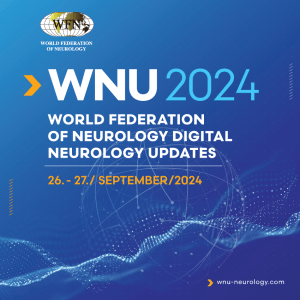
Attended by over 250 colleagues, a significant number of delegates had travelled from as far as Australia, Canada, Iran, Israel, Japan, Malta and Sweden. There was a mixture of Consultant Psychiatrists, Core/ Advanced Trainees, SAS, Student Associates as well as a number of non-College members. As always, our 2019 conference covered a number of topical clinical, research and medico-legal angles, relevant to all of those working in the field of Neuropsychiatry. Delegates were informed (and at times entertained!) by a number of carefully selected, distinguished speakers in a range of keynote presentations and seminars.
The conference opened with a succinct presentation from Prof Wendy Burn, College President that summarised recent developments in relation to the Neuroscience project and how this will benefit training, professional development and clinical practice.
Conference attendees heard about alternative, less orthodox approaches in studying memory and its disorders. Prof Johnstone delivered an excellent presentation on Alzheimer’s disease and the food-gut-brain axis. The growing evidence that identifies the gut microbiota as key in the interaction between specific nutrients and brain function was highlighted, alongside the potential for considering nutritional approaches to address challenging behaviour.
In a talk entitled ‘Injured mind and intact brain’, Prof Kopelman of King’s College then presented an argument for viewing each case of ‘functional cognitive disorder’ as a single-case experiment in terms of assessment and management. Following on from this, a session dedicated to the risk of developing dementia in the context of various neurological conditions and another on the Neuropsychiatry of stroke were delivered. Dr Agrawal presented data accumulated over the last few decades that points to progressive neurocognitive and neurological decline with age and repetitive injuries. The increased risk of dementia with significant traumatic brain injuries was highlighted. Similarly, the wide range of behavioural and cognitive disturbances associated with movement disorders were discussed by Prof Cavanna; being potentially the most disabling aspect of the illness.
Dementia in the context of cerebro-vascular disorders was then discussed by Dr Jeremy Isaacs. Dementia prevalence and stroke incidence are both falling in high-income countries, but the prevalence of vascular risk factors is increasing, which might reverse this trend. While stroke is a common disease and post-stroke dementia is a common complication, most strokes are due to large vessel disease, whereas the majority of vascular cognitive impairment (VCI) is due to small vessel disease, which often co-exists with neurodegenerative pathologies, such as Alzheimer’s disease.
On a related theme, Prof Anthony David talked about functional stroke mimic. Acute stroke-like presentations are relatively common and have become more noticeable with the advent of hyperacute stroke services in major centres in the UK. The lack of a clear clinical pathway for functional stroke mimics was particularly discussed. This was followed by a talk on Neuropsychiatry of stroke by Dr Dilley which was particularly relevant to clinical practice of mental health professionals. A particularly welcome update on acute stroke and its management was delivered by Dr Pereira.
Advances in Neuropsychiatric genetics were discussed in detail. Prof Sir M Owen, Director of the MRC Centre for Neuropsychiatric Genetics of Cardiff University reviewed recent advances in schizophrenia and related disorders. He also outlined their likely impact on psychiatric research and practice. Prof J Williams CBE then talked about the Neuropsychiatric genetics of Alzheimer’s disease. Genomic analyses further support the contribution of immunity/inflammation and specifically highlight the role of microglia, hub genes and biological networks. Current analytics have enabled the capture of between 30 – 50% of heritability for common genetic variation in Alzheimer’s disease.
Our humanities session addressed the role of art in a Neuropsychiatry setting. A presentation entitled ‘Personal experience of encephalopathy through art’ was delivered by Andrew Hewkin. An equally inspiring talk was presented by Alan Dyer, artist and psychologist, which summarised his personal experience of art, perception and neuroaesthetics. The talk looked at relationships between order and disorder in art and aesthetic perception. How Neuropsychiatric patients are – and should be – managed in a general psychiatry setting was the subject of a lively debate, that triggered reflection and ideas sharing on optimal service models, as well as the management of individual patients.
Other interactive sessions included seminars on topics such as what parasomnias tell us about the brain, seizure semiology, Wilson’s disease and the use of psychotropic medication in Huntington ’s disease. A popular seminar on Neuropsychiatry and capacity assessment was delivered jointly by a consultant Neuropsychiatrist and a barrister who emphasised the fact that assessment of capacity is pivotal to clinical practice in Neuropsychiatry. Likewise, an update on the role of expert witnesses in Neuropsychiatry was the subject of an equally popular seminar session.
In a dedicated session for trainees, our future neuropsychiatrists, high quality projects were presented and distinguished ones were presented with awards by Prof Joyce, our Faculty chair at the conclusion of the conference. As always, the programme contents were supplemented by poster presentations, and delegates were invited to browse these at leisure.

